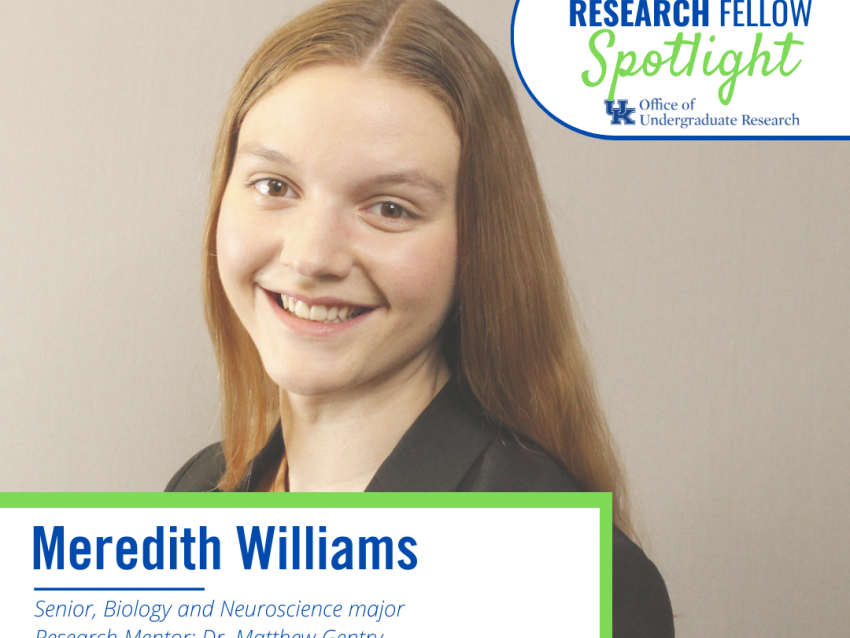
Meredith Williams Summer Research Fellow 2022
"Can Oral Supplementation of Glucosamine Restore Protein Hypoglycosylation in Lafora’s Disease?"
"Lafora’s disease is a fatal childhood epilepsy and dementia that is caused by mutations in the EPM2A or EPM2B gene. Mutations in these genes are responsible for altered glycogen metabolism leading to the buildup of insoluble sugar aggregates, or Lafora bodies, that our lab found perturbs brain protein glycosylation. To characterize the relationship between perturbed glycogen metabolism and protein glycosylation, this summer project will investigate whether oral administration of glucosamine, a building block in glycosylation, delivered to LD mouse models will affect their behavior and brain metabolic profile."
Q. FINISH THIS SENTENCE: "I enjoy research because....."
A. "I enjoy research because it gives me the community I need to push myself and science forward to help others."
Q. How did you first get interested in undergraduate research at UK?
A. "Touring UK as a high schooler and learning that it was an R01 institution was a significant factor in my decision to attend here for my undergraduate career. I first got involved in undergraduate research through my experience in the Chellgren Fellowship."
Q. What has been the most exciting aspect of your research experience so far?
A. "Starting research in the middle of the pandemic meant that a lot of experiences for my first year in the lab looked different. A little over a year into undergraduate research, I had the opportunity to present my poster ‘Elucidating the Role of Glycogen in Glucose Transporter 1 Deficiency Syndrome’ at the Experimental Biology conference in Philadelphia. This was my first in-person poster presentation and scientific conference. It was both an exciting and inspiring week."
Q. How has undergraduate research impacted your college experience at the University of Kentucky?
A. "Participating in undergraduate research has given me a group of peers that continue to support and encourage me both inside and out of the lab. The fellow undergraduates that I have met during my time in Dr. Gentry’s lab are some of the most driven and personable students and I count myself lucky to be working alongside them."
Q. What advice would you give to UK students who are considering starting research?
A. "Clear your schedule and treat it like a job- the more time you can spend in the lab, the more skills and better relationships you will build."